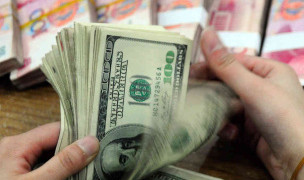 20 Terms
20 TermsHome > Industry/Domain > Energy > Nuclear energy
Nuclear energy
Nuclear binding energy is the energy required to split a nucleus of an atom into its component parts. The component parts are neutrons and protons, which are collectively called nucleons. The binding energy of nuclei is always a positive number, since all nuclei require net energy to separate them into individual protons and neutrons.
Industry: Energy
Add a new termContributors in Nuclear energy
Nuclear energy
pressurizer
Energy; Nuclear energy
A tank or vessel that acts as a head tank (or surge volume) to control the pressure in a pressurized water reactor.
pressure vessel
Energy; Nuclear energy
A strong-walled container housing the core of most types of power reactors. It usually also contains the moderator, neutron reflector, thermal shield, and control rods.
pressurized-water reactor (PWR)
Energy; Nuclear energy
A common nuclear power reactor design in which very pure water is heated to a very high temperature by fission, kept under high pressure (to prevent it from boiling), and converted to steam by a ...
power reactor
Energy; Nuclear energy
A reactor designed to produce heat for electric generation (as distinguished from reactors used for research), for producing radiation or fissionable materials or for reactor component testing.
preliminary notification (PN)
Energy; Nuclear energy
A brief summary report issued by the NRC staff to notify the Commission of the occurrence of a significant event that appears to have health and safety significance or major public or media interest. ...
power uprate
Energy; Nuclear energy
The process of increasing the maximum power level at which a commercial nuclear power plant may operate. This power level, regulated by the NRC, is included in the plant’s operating license and ...
power defect
Energy; Nuclear energy
The total amount of reactivity added due to a given change in power. It can also be expressed as the integrated power coefficient over the range of the power change.

